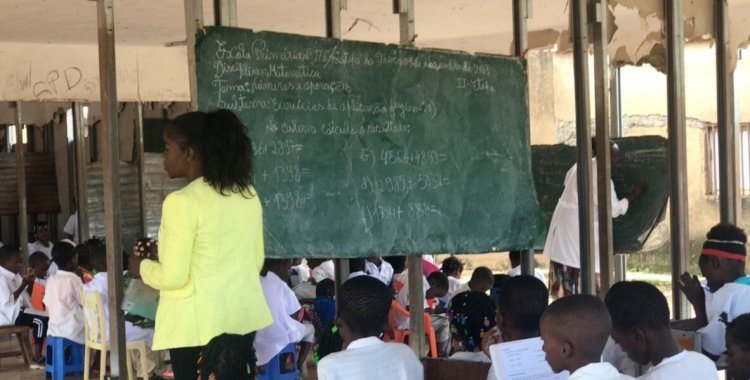Speaking to Lusa, Rafael Marques, president of the Ufolo Study Center for Good Governance and one of the project's mentors, explained that it is about involving agents who participate in educational activities and civil society to reduce the level of student dropout, due to the lack of public transport and the long distances they have to walk.
He gave as an example some villages in Cuíto (capital of Bié) without access by public transport and where children would have to walk 26 kilometers to go to school.
"It's 52 kilometers of walking, it's not possible to expect this child to be able to do this walk every day or to have some academic performance", said the director of the Maka Angola journalism website and civic activist.
It is about "seeking to find hybrid, face-to-face and distance learning solutions, which allow the creation of a category of itinerant teachers who can go to these communities and transmit knowledge so that children at least learn to read and write", he highlighted, adding that civil society is also being actively involved in the project.
"We are mobilizing motorcycle taxi drivers who arrive in these remote villages, where cars often don't even reach, to create this system", which he called "Friends of Education", to ensure transport for teachers.
Even though teachers are traveling, they need to have transport, he noted, saying that "it is not acceptable for teachers to have to make these long walks to go and teach".
The project is also mobilizing the private sector to finance a fund that will help cover, for example, transport costs, and intends for the community itself to follow the process.
"Due to the state of the country, many no longer believe that education is important for the future of these children, for the lives of these families. They believe that family farming, on which they depend for their livelihood, is more important. Therefore, it is necessary to convince communities to support education, so that these children do not have one of their fundamental rights restricted", said the head of Ufolo.
The project has initial support from Banco Millennium Atlântico and also aims to mobilize financing from local businesspeople and involve partners, such as motorcycle taxi and taxi drivers' associations, which may also have benefits, such as the "Friends of Education" seal.
The idea, according to Rafael Marques, is that those who adhere to the seal are "less confronted with the impediments that occur in everyday traffic in Angola", improving their relationship with the police.
On the other hand, teachers, many of whom do not have the financial capacity to support travel prices, will also benefit from special rates, with taxi drivers being compensated through the fund.
"The issue is that, due to the lack of public transport and institutional measures, in the medium and long term we cannot allow these children to continue to be penalized, because it is a constitutional violation of a fundamental right", concluded the activist.
Rafael Marques was present this Monday, in Bié, at a meeting on the mobility of teachers and students, which brought together several entities with the aim of seeking logistical and educational solutions for children from remote communities, which are difficult to access and exclusively dependent on agriculture subsistence.







